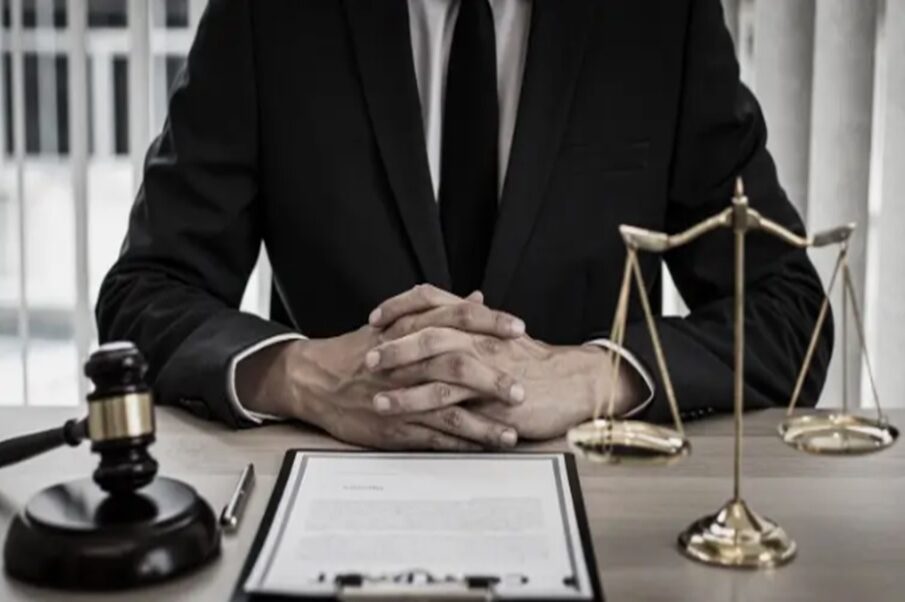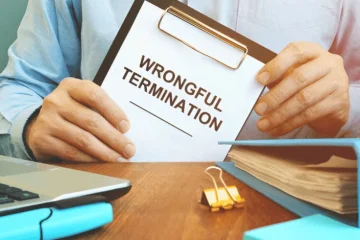Misdemeanor Forgery Attorney: Expert Legal Defense Strategies

Navigating the complexities of misdemeanor forgery charges can be daunting without the right legal assistance. We understand how vital it is to have a defense that is both robust and precise. Our role is to ensure that you are not wrongfully convicted due to misunderstandings about intent and circumstance.
Misdemeanor forgery involves altering or creating a document with the intent to defraud. Such charges can significantly affect one’s criminal record. We are dedicated to thoroughly examining each detail of your case, ensuring that the facts are clear and that your defense is as strong as possible.
Choosing a competent attorney is crucial in these situations. We focus on building a compelling legal defense, aiming to protect your rights and future. Our team works meticulously to dismantle any allegations of intent to defraud, providing you with the best possible outcome.Learn more about Misdeameanor Forgery Attorney
Understanding Misdemeanor Forgery
Misdemeanor forgery remains a significant legal issue, often involving intent to deceive others. We will explore how these crimes are defined, how they differ from felonies, and examine some typical examples of forgery offenses.
Definition and Elements of Forgery
Forgery entails the false creation or alteration of documents with the intent to defraud. Within the framework of penal code § 470, this offense can cover various actions such as signing someone else’s name or altering a document.
It typically necessitates that the action was committed with the intention to deceive. A forged document or instrument is central, often presented as genuine to harm others or derive unlawful gains.
Distinction Between Misdemeanor and Felony Forgery
The classification as either misdemeanor or felony hinges on the crime’s details and jurisdictional guidelines. In many scenarios, forgery may be treated as a “wobbler,” allowing it to be charged either as a misdemeanor or felony. Misdemeanor charges usually involve less severe repercussions compared to felony charges.
Felony forgery might encompass more serious offenses like large-scale counterfeiting or identity theft. In contrast, misdemeanor forgery often refers to lesser, although still serious, acts of falsification.
Common Types of Forgery Crimes
Various crimes fall under forgery, each involving unique aspects. Check fraud is prevalent, where checks are illegally altered or signed. Credit card fraud stands as another common type, involving unauthorized credit card transactions.
Moreover, art forgery involves crafting or changing art pieces deceptively labeled as originals. In the health care fraud domain, professionals might alter documents to falsely claim insurance benefits. Each of these crimes, though distinct, aligns under the broader term of white-collar crime, primarily driven by attempting financial gains.

Legal Ramifications and Defense Strategies
When dealing with misdemeanor forgery, understanding the legal implications and having effective defense strategies are crucial. We explore the potential penalties and the impact on one’s life, as well as defense approaches to safeguard rights.
Penalties and Punishment for Forgery
Forgery charges can lead to serious consequences, impacting both personal and professional life. The penalties often include fines, restitution, and even imprisonment or probation. Depending on the jurisdiction, forgery can escalate from a misdemeanor to a federal offense, particularly if it involves federal laws or fraudulent documents.
A criminal forgery conviction can result in a tarnished criminal record. It’s essential to be aware of the statute of limitations, which varies by region and can influence the progression of legal proceedings. Understanding these potential repercussions is key to preparing an effective defense.
Protecting Your Rights: Strategies for Defense
To protect our rights, it’s vital to engage a knowledgeable criminal defense attorney specializing in forgery. They can provide essential legal advice and representation. Defense strategies might include challenging the evidence of fraudulent intent or a lack of it.
Legal defenses may focus on proving absence of intent to commit fraud or arguing procedural errors in the case. By thoroughly examining the specifics of the charges and related offenses, we can work towards mitigating or dismissing the allegations.
Potential Impact of a Forgery Conviction
A forgery conviction can have long-lasting effects beyond the immediate legal penalties. Employment prospects might dwindle due to a criminal record, categorizing the individual as a white-collar offender. This can also influence eligibility for certain licenses or professional opportunities.
Moreover, the personal repercussions could strain relationships and lead to financial burdens due to fines or restitution orders. It’s crucial to recognize these potential impacts to make informed decisions about pursuing defense strategies and seeking professional legal guidance.
Navigating these challenges requires careful assessment and action to safeguard our future stability and well-being.










